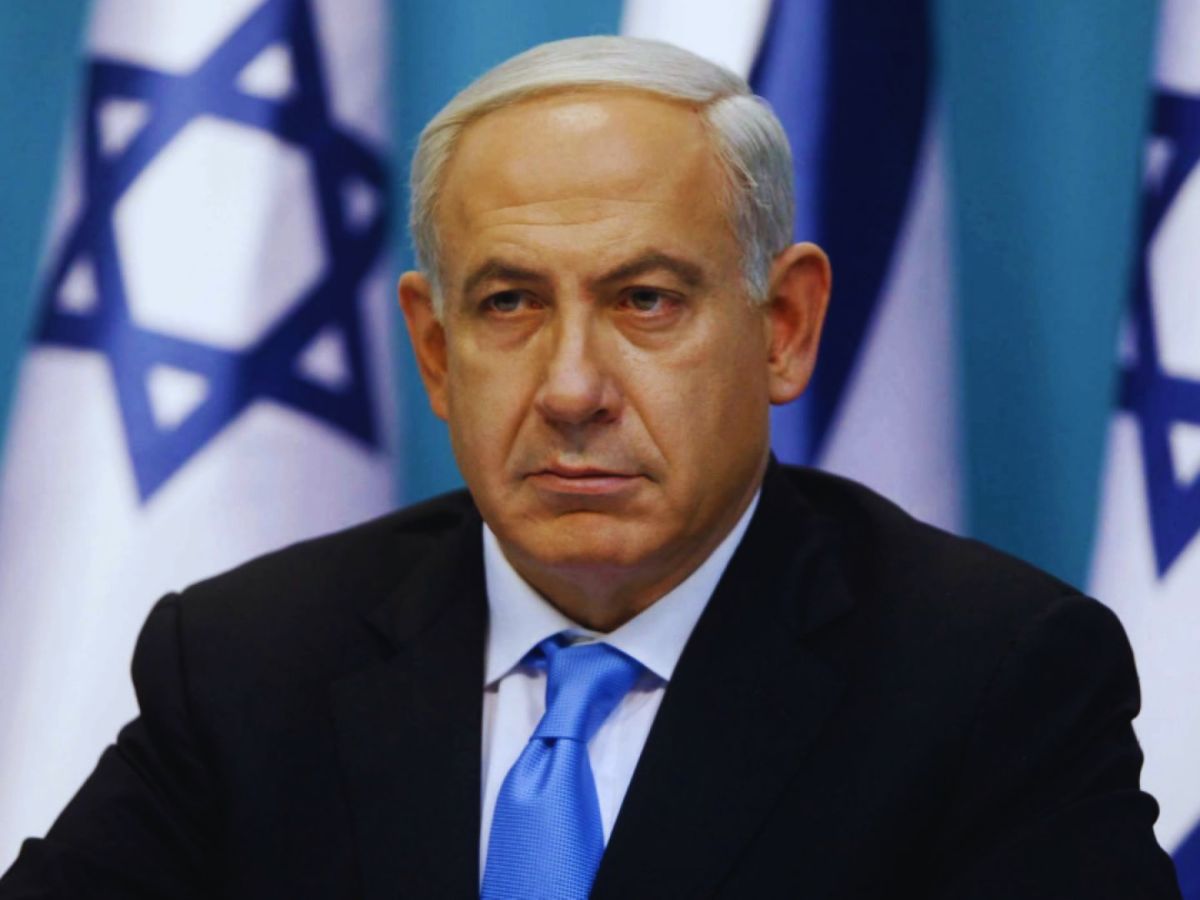Iran launched over 150 ballistic missiles toward Israel late Saturday night, marking one of the most direct and significant assaults by Tehran on Israeli soil in recent years. The Israel Defense Forces (IDF) confirmed the attack, warning citizens through its official X handle: “All of Israel is under fire as Iran fires projectiles.”
Netanyahu Responds: “More is on the Way”
In a defiant video statement released Friday night, Israeli Prime Minister Benjamin Netanyahu addressed both the Iranian regime and its citizens. He made it clear that Israel’s battle was not with the Iranian people, but with the country’s leadership. “Stand up and let your voices be heard,” Netanyahu urged the Iranian public.
His message to Iran’s rulers, however, was far more severe: “More is on the way. The regime does not know what hit them, or what will hit them. It has never been weaker.”
Netanyahu claimed that in response to Iranian aggression, Israel has already taken out a major nuclear enrichment facility, destroyed a large portion of Iran’s ballistic missile stockpile, and eliminated top Iranian military commanders and senior nuclear scientists. These bold claims come amid a rapidly unfolding conflict that has drawn international concern.
Air raid sirens blared across major Israeli cities, including Tel Aviv, Jerusalem, and regions near the Negev Desert, as citizens rushed to shelters. While the IDF and Israel’s multi-layered air defense system worked to intercept many of the incoming threats, officials acknowledged property damage in the country’s Northern District, though no injuries have been reported so far.
ALSO READ: 7 Injured As Iranian Missile Strike Hits Near Tel Aviv And Ramat Gan
Iran Strikes Back: “True Promise 3” Operation
The Islamic Revolutionary Guard Corps (IRGC) confirmed the missile launch, stating that Iran had targeted “dozens of Israeli military centers and air bases” as part of an operation dubbed “True Promise 3.” The IRGC vowed that additional details about the mission would be released in the coming days, emphasizing that its actions were a response to Israeli provocations.
A senior Iranian official told CNN that “The Iranian Armed Forces’ operations against the Zionist regime’s positions will continue, and this regime is facing a dark night ahead.” The official also claimed that Iran had intercepted several Israeli aircraft and neutralized a significant number of Israeli drones and projectiles. However, these claims have not been independently verified.
Fire and Damage Reported in Northern Israel
According to an Israeli police spokesperson, one Iranian munition intercepted by Israeli air defenses landed in the Northern District, causing property damage but no reported casualties. Fire and rescue teams responded to at least two incidents in open areas linked to the missile strike. The Israeli Fire and Rescue Service is continuing efforts to contain the fallout from the attacks.
International Reactions and Rising Tensions
This latest exchange represents a dangerous turning point in the ongoing shadow war between Israel and Iran. While both countries have engaged in covert operations and cyberattacks over the years, direct strikes of this scale are rare and raise fears of a broader regional conflict.
The international community has called for de-escalation, with diplomats from several nations urging both sides to exercise restraint. However, given the scale and severity of the attacks, the situation appears far from cooling.
As Israel and Iran trade blows, the coming days will likely see increased military activity and possibly further retaliatory strikes. Prime Minister Netanyahu’s warning that “more is on the way” suggests that Israel is preparing for a sustained response, possibly targeting additional Iranian infrastructure and military assets.
Meanwhile, Iran’s continued threats and its “True Promise 3” campaign signal that it is not backing down either. The tit-for-tat warfare, coupled with rising rhetoric from both governments, has placed the Middle East on high alert.
With over 150 ballistic missiles fired at Israel and a stern warning from Netanyahu about more Israeli retaliation, the conflict between Iran and Israel has entered a highly volatile phase. The international community watches closely as two of the region’s most powerful adversaries inch closer to open war. In this tense atmosphere, one thing is certain: the next few days will be critical in determining whether this flare-up escalates into a full-scale conflict or winds down through diplomatic intervention.
Sofia Babu Chacko is a journalist with over five years of experience covering Indian politics, crime, human rights, gender issues, and stories about marginalized communities. She believes that every voice matters, and journalism has a vital role to play in amplifying those voices. Sofia is committed to creating impact and shedding light on stories that truly matter. Beyond her work in the newsroom, she is also a music enthusiast who enjoys singing.







